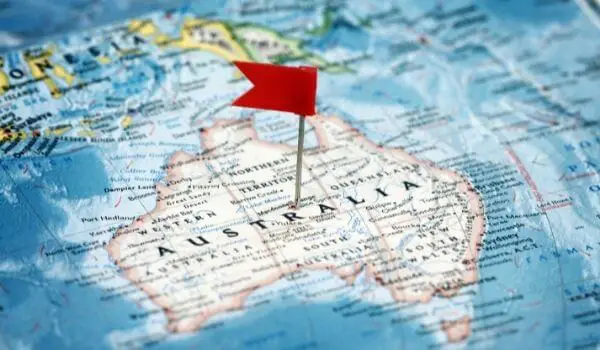Some people might think that an Australian last name is only applicable to those who live in Australia. However, there are many different origins for the surnames found across the continent. For example, some of these names may be derived from Scottish or Irish roots while others may come from England or Wales. This article explores the meaning behind popular Australian surnames and what they mean for their owners.
Most common Australian last names
Smith – we had to start with the most popular surname, right? It has English origins and it is derived from smitan, meaning “to smite”.
Brooks is an English name that comes from the Old English word, which means brook or stream.
Jones is an English surname that can be traced back to Welsh roots. It comes from a personal name connected with the Latin name Iohannes, which is in short form John or Jon.
Mackay: one of Australia’s most common last names has Scottish roots. It is thought that the name derives from the Gaelic word ‘mhac’ meaning ‘son of’.
Anderson is an English and Scottish surname, which comes from the word Andrew.
There are also some Australian names of Indigenous Australian origins. Perlman is a name that comes from Australia’s Indigenous people, the Aboriginals. Perlman comes from an Australian Aboriginal tribe of Western Australia, whose language belongs to the Pama-Nyungan group.
Ramsey is a popular Australian surname of Aboriginal origin. It is said to have derived from the Kamilroi people in New South Wales.
A common Australian last name of Scottish origin, Thomson is derived from the Celtic word ‘tum’ meaning ‘the earth’. It is also said that it may have come from the Greek word ‘thomos’, which means large.
Baxter is also an English and Scottish surname, meaning one who lives or works at the baker.
Bennett has English origins. It can be traced back to the Middle Ages, meaning the son of Benet or Benedict.
Some uncommon Australian names include:
Violet: most likely named after a flower of the same name.
Weston: most likely named for someone who lived in the western town.
Keating: may derive from an Irish surname that means ‘descendant of Cathaeigh’.
Collett: can be traced back to English roots, where it simply means ‘clerk’.
Harrison: a popular English last name originating from a place called Harrison, meaning a wood near a landing place.
Tucker: an English last name, likely meaning ‘one who tucks people up in bed’.
Treeby: comes from a Scandinavian word meaning tree settlement or tree farm.
Campbell: taken from the Celtic word for crooked mouth.
Dixon: most likely named after someone who lived near a ditch or dyke.
Lambert: most likely means bright and shining.
Humphries: meant to be a common English surname meaning ‘son of Robert’.
Newman: named after someone who lived north of the manor.
Walker: many believe that this name came from an Old English word, meaning one who is a fuller of cloth, or is named after someone who lived in the northern area.
Clarke: a popular English surname that derives from the Old French word ‘clerc’, meaning scholar.
Watson: likely named for someone who was from Wales.
Duffy: is most likely named after an Irish name, O’ Dubhthaigh, which means black poet.
Snape: is most likely named after an English place called Snape.
Russell: one of Australia’s more uncommon last names, it is believed to have come from the Old French word ‘rous’, meaning reddish-brown hair or red in color.
Powell: can be traced back to Welsh roots, where it means son of Howell.
Goddard: likely to have been given as a last name because someone was from Godarville, which is now called Woodford.
Parker: most likely named after one who hunted wild animals in a park or forest.
Spencer: a popular English last name that comes from a place, or it can mean ‘dispenser of provisions’.
McLachlan: a Scottish last name that is derived from the Gaelic word for “son of Lachlan”.
Some types of last names that Australia has:
Fitzpatrick: a common English and Irish surname meaning ‘son of Peter’.
Baker: comes from the profession, where it means one who bakes.
Ryan: a popular Irish surname meaning ‘descendant of Riaghan’.
Adamson: can be traced back to English roots, meaning ‘son of Adam’.
Blackburne: can be traced back to Old English, where it means ‘black stream’.
Freeman: is an English last name meaning the son of a freedman.
King: is believed to have come from Old German, and comes from the word ‘kunni’, which means nobility.
Daley: also taken from English roots, it was given as a last name because someone lived in a dale or valley.
In Australia, it is common for last names to have been shortened from their original form. For example, O’Keefe would be changed to Oakley, and MacDonald would be shortened to McDonald.
The Australian culture is one that has been shaped by its history and geography. This means, of course, the people’s surnames are an important part of their identity as well. It can be interesting to look at how different nationalities have influenced the genealogical make-up of Australia over time. For example, if you were born in Queensland or New South Wales then your last name might end with “son” rather than “sen” like most other Australians (though there are exceptions). There could also be a variation in spelling because some names come from Aboriginal languages which don’t translate easily into English letters. If you want to read more articles about the significance of last names, feel free to browse the other articles on the website!
- 72 Car Names - November 9, 2021
- 40 Yellow Car Names - November 9, 2021
- 56+ Silver Car Names - November 5, 2021
